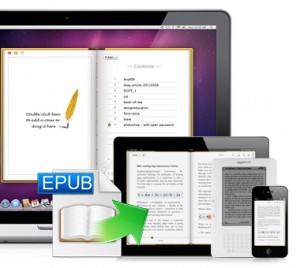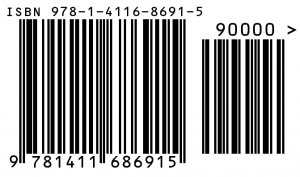This is a repost of our best of 2012 posts. Enjoy the festive season…
A few years ago I put together a guide for authors looking to find a good service provider to self-publish their books. A lot has changed since I first put that guide together. So here we go for 2012…
1. Non exclusive contract with clear terminology
Never sign a contract with an author solutions provider unless you have fully read it and understand what it is you are signing up to/for. Some companies issue a physical contract for you to sign, while others will request you click and agree to a ‘terms of service’ document online. As an author looking for a solutions provider, you should be looking to contract an agreed set of services; editing, design, formatting, print, marketing and promotion, and dissemination of your work. You should not be assigning away secondary publication rights, copyright or subsidiary rights (Film, TV, translation etc) to the company. Author solutions providers should only expect you to sign a non-exclusive contract for the fee you pay and you should also be very wary of companies using terminology in a contract like ‘we, the publisher’…
A reputable solutions provider will always include a clause outlining cessation of the agreement and the period of time and means this should executed by either party. As an example, an author might send an email seeking cessation within 30-60 days as per the terms of contract. If you start to read the terms of the contract and they appear unclear or there is an overuse of legal terminology, it may be an indicator that the contract is not author-friendly and was drawn up solely to protect the rights of the company in the event of legal action, providing little remittance or legal retribution for an author when things go wrong. I know some providers have even inserted clauses stating that legal action must be filed in the state where the company resides (controlling law) and that can make legal claims deliberately prohibitive in cost. If you are unsure about the contract or terms you are signing up to, then always request clarification/change or seek independent legal advice before signing it. Ultimately, if your potential author solutions provider is cagey about answering direct questions, then take your business elsewhere.
2. Ownership of book files (if you paid for it, you should own it!)
This remains a moot point with author solutions providers. If you, the author, created the book files for submission or load up, and paid a fee for the creation of book files with a provider, then you, the author, should own the finished files, PERIOD, and no arguments! However, this is still not the case with many author solutions providers. Should you wish to leave and take your book to another provider, many will refuse to release the completed book files, leaving you, the author, out of pocket and having to start from scratch. What is even worse than that is the provider charging an additional fee for the release of completed book files. Always seek clarity on this before you enter the production process.
3. Multi-format availability in print and ebook
A reputable and modern author solutions provider should always be able to offer an author a whole gamut of print, format and distribution platforms. A few service providers have the resources to print in-house, but the majority should have print partnerships or affiliate agreements externally to deliver customer requirements whatever they are. If your solutions provider cannot offer a hardback print edition, an offset print run, an ebook in ePUB or mobi format, or the option of a full colour interior, then it’s likely the service provider has limited print resources (possibly only a POD facility) and even less distribution programs in place for the books it produces.
4. A book-centric solutions provider
Your choice of solutions service provider should be book-centric and not solely service-centric. If the main web page of your provider targets you, the author, and focuses very little on the books it produces, then it’s likely the vast majority of revenue generated derives from author fees and not from the sales of books. An author solutions provider is only book-centric when it does all or most of the following:
- Books are prominently displayed across the provider’s web site
- An online bookstore is facilitated on the web site with buy links
- Arranges book launches, media events and signings, and promotes these events on the web site and externally
- Author ‘buy’ pages and biographical detail is listed
- The provider’s social network links are prominently displayed on the web site
- External links and listings are displayed to articles on self-publishing and the general book industry
- The provider displays official logos as proof of membership of publisher guilds and publishing associations. Reputable industry guides etc (e.g. IPG, Small Press Distribution, The Writers’& Artists’ Yearbook)
5. Clear breakdown of author fees, royalties and book discounts
This information should never be buried away on a solution provider’s web site, brochure or FAQ’s. It should be clearly defined under a page for ‘costs’, ‘royalties’ or ‘discounts’. No company in the business of providing a service should be anything but compliant and transparent about the existence of fees and giving clear and detailed information on royalties for an author. There should be clear information on services, packages offered, and clear definitions of net and retail pricing. If it takes you, the author, an age to elicit this information, then it’s likely the provider has something to hide and wishes to confuse authors and complicate the process of publication. You will probably find the provider’s competitors offer better deals. Ensure you understand if quoted discounts/royalties on book sales are offered off the retail price of a book or the net receipts (the money the publisher actually collects). Ascertain what the print only cost of a book is and what price the provider is willing to offer books directly to you. Knowing these crucial details allows you to work out what kind of mark-up the provider is placing on books sold directly to you ‘at cost.’
6. Access or referral to editing professionals and services
Whether you approach a service provider with a professionally edited book ready for the market or not, your solutions provider should offer access to professional editors (named and listed) and various other pre and post production services required. If the provider does not offer such services, it may be a clear sign that it accepts any crap for publication ‘as is.’ A reputable author solutions provider will always advise you on what work is required to improve your book whether you choose to use its services or not. Always be wary of a provider that will not elicit the name of a specific publishing professional (or freelance professional) or the name of an affiliate service it is supposedly referring you to. An author solutions provider should not act as a middleman or conjugate to another external service. You should be free to work with any other external service or professional you wish in conjunction with your chosen provider. Never accept the line, “Oh, we only accept books using our editing/design services.” If an author solutions provider cannot be flexible, then go somewhere else.
7. ISBN ownership facility
A good author solutions provider will always offer you with the option of using your ISBN’s and publishing imprint name. Many services still insist you use their assigned ISBN. This is not true self-publishing and by pursuing this path of publication you have already legally given up your right to be both author and publisher. There is nothing inherently wrong with using an assigned ISBN from a provider so long as you understand that you, the author, are not the ‘publisher of origin’ and cannot take the edition of your book ‘as is’ to another provider without first changing the book files and logos and reregistering the new edition with your new ISBN and publishing imprint. There may also be additional issues with copyright on the cover images used. Some providers—like Lulu and Selfpublishing.com—are affiliated agents for Bowkers, and can assist in obtaining ISBN’s on your behalf. For other providers of self-publishing services, you will have to contact Bowkers to request and purchase a block of ISBN’s before contracting the services of a provider.
8. Global partnerships and agreements with wholesalers and distributors
This is actually one of the most substantial areas of consideration for self-publishers examining author solutions providers. Many companies offering author solutions use Lightning Source as a printer and this gets books submitted into the Ingrams Book program. Ingrams own LSI and it is the largest book wholesaler in the USA, but it also operates as a distributor for many large and independent publishers. Similarly, in the UK, Gardners is the largest wholesaler of books. Bertrams is another UK wholesaler offering distribution services to publishers.
It’s important for self-publishers to understand the difference between what a wholesaler is and what a distributor is. In short, for the purpose of this brief, a wholesaler is essentially a company with a warehouse and a vast database of listed books—some physically housed there as well as ‘available’ on a database inventory for purchase and shipment to booksellers. A distributor of books is a company with a team of sales representatives operating on behalf of a list of client publishers dedicated to selling ‘their’ catalogue of books to buyers in bookstores. A wholesaler only reacts to book orders from the bookselling trade or orders submitted directly from the publishers, but a distributor is proactive about selling its clients’ books to the retail trade.
So, if your solutions service lists their catalogue of books with a wholesaler – that’s dandy – but it won’t of itself sell a single book. Unless your publisher/solutions service or the author’s readers go looking for your book—no one knows it even exists unless someone goes looking for it! Few author solutions providers have book distribution deals in place and consequently use print on demand and depend greatly on online sales through vendors like Amazon and Barnes & Noble as well as offering ebook publication through multiple platforms like Apple’s iBookstore and Amazon’s Kindle store.
The reality is that the vast majority of books are sold from the shelves of bookstores in spite of the growth in sales of printed books online and ebooks. Many author solutions providers still use POD as a method of printing books, but despite their claims, only some are successful in getting physical books on the shelves of stores, and those that do get bookstore placement with high street chains and independent bookstores, achieve it by having small niche distribution deals and often by using short digital print runs of several hundred books combined with considerable input and promotion by authors and their social networks.
Always remember; however hard your author solutions provider will work to support and promote you and your book – they primarily provide solutions to an author’s needs. They are not Penguin Books or Random House. They do not possess the same resources and global partnerships, nor are they—ultimately—publishers in the traditional sense, whatever claims are made to you as an author. The best of them may have the success and penetration of a small independent press publisher, but the worst providers are nothing more than printers. In the past few years we have seen the emergence of traditional publishing houses operating self-publishing imprints, but these remain hybrid entities and I remain unconvinced about the claims of success, opportunity, access and backing made by the publishing motherships. I’d much rather see a growth in academies and workshops run bypublishers like Faber.
9. Strong presence on social networks
Up until a few years ago I wouldn’t have listed this one here. Now, it is different for two fundamental reasons – as a necessary promotional tool for author and service, and for public transparency of a provider. Social networking is an important tool in the arsenal of a self-published author. It is a breeding ground to grow contacts, reach more people of like-mind and promote fan bases and brand following. This is one of the most direct ways an author or author solutions provider can connect with their communities, and, above all, social networking—when used well—is an ideal way for a business to reach and learn about its customers. Now, for me, it’s a big red flag when I don’t see an author solutions provider engaging with social networking. Not engaging with social networks is not only short-sighted, but suggests to me that the provider has limited staff resources, or worse, is potentially hiding the inadequacies of its services from public exposure and criticism.
10. Transparency of staff skill set
Like the old Wizard of Oz, we all want to know who is pushing the dials and king of the castle. Too many author solutions providers are non-transparent about the amount of staff in the company, and what its skill set and experience is in the critical areas of publishing, editing, design and marketing. Over the years, I’ve come across too many solutions providers that turned out to be one or two-man bands with few tricks. I’ve no problem with small operators so long as the author is aware of this and the solutions provider does not outstretch its own capabilities. Web designers don’t make good editors, no more than publishers make good plumbers. If you trust your book with your chosen author solutions provider without knowing its experience and skill set – ask yourself if you would hire an architect to fix the next water leak in your house.
11. Marketing and promotional support beyond printed materials and templates
I’ve seen all too many solutions providers classify printed bookmarks, posters and business cards as marketing services. If this is all that is on offer from a solutions provider in the way of marketing – chances are you are on your own when it comes to marketing your book and you are simply dealing with a glorified printer. A press release service should not be about a provider sending you an email with a template attached to it. That’s called ‘f**k-off and DIY’, while still collecting a fee. A marketing and promotional campaign is where an author service is prepared to work with an author to plan out the strategy and launch of a book over a period of several months, and not just using the author’s own provided contact list. A good solutions provider will work with an author from day one of submission.
12. Communication
I quite possibly have left the most important function of an author solutions provider until last. Frankly, if your provider doesn’t have the ability to work well with you, communicate and update you in a timely fashion and keep to deadlines, then all of the above is a complete waste of time. Communication is the biggest complaint I hear from authors who contact me about problems with a provider. “If they had at least told me – then I’d have known and could have forgiven them.” There is nothing worse than having to listen to authors make excuses for their provider’s lack of communication and knowhow, because the authors have already paid their fees and still feel obliged to defend the indefensible. Author solutions providers—in my experience dealing with them as an author and publishing consultant—often have a high staff turnovers because interns or part-timers are employed to fill gaps – the most important gaps—and authors get pushed from one representative to another. In the publishing world, and in other industries, representatives sell something to you. So, if you get put through to a representative, or ‘your rep’, put the phone down and move to another service. Your author solutions provider should listen and identify your needs through consultation with you. Both of you should mutually agree on your book requirements and you should never feel that you are being sold services you don’t need.


















